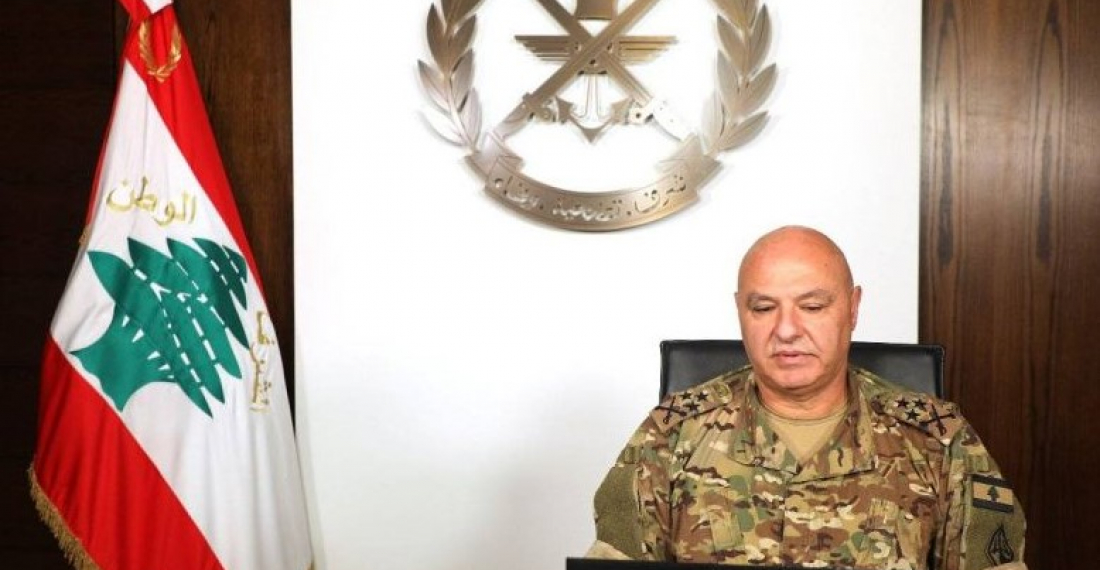The commander of the Lebanese armed forces, General Joseph Aoun, appealed to the international community on Thursday (17 June) to support the army, warning that its “collapse” will fuel chaos and insecurity. His statement was addressed to representatives of various states at a French-sponsored conference to support the army.
General Aoun added that the army needs urgent support to maintain its cohesiveness and to keep carrying out its duties. General Aoun has sought to rally Lebanon’s traditional allies, the US and France, to provide support for the army.
The economic situation in Lebanon is dire with half of the population falling into poverty. The economic crisis has also eroded the army’s personnel purchasing power and weighed heavily on morale.
“Lebanon is facing an unprecedented economic crisis and the lack of solutions in the near future has become evident,” General Aoun said, cautioning that if the army were to disintegrate, Lebanon, as an entity, would also collapse and “chaos will spread”.
French Defence Minister, Florence Parly, said the conference in support of the Lebanese army was aimed at empowering the army to maintain stability and security. The conference was attended by representatives from 20 countries including a number of defence ministers and chiefs of staff.






